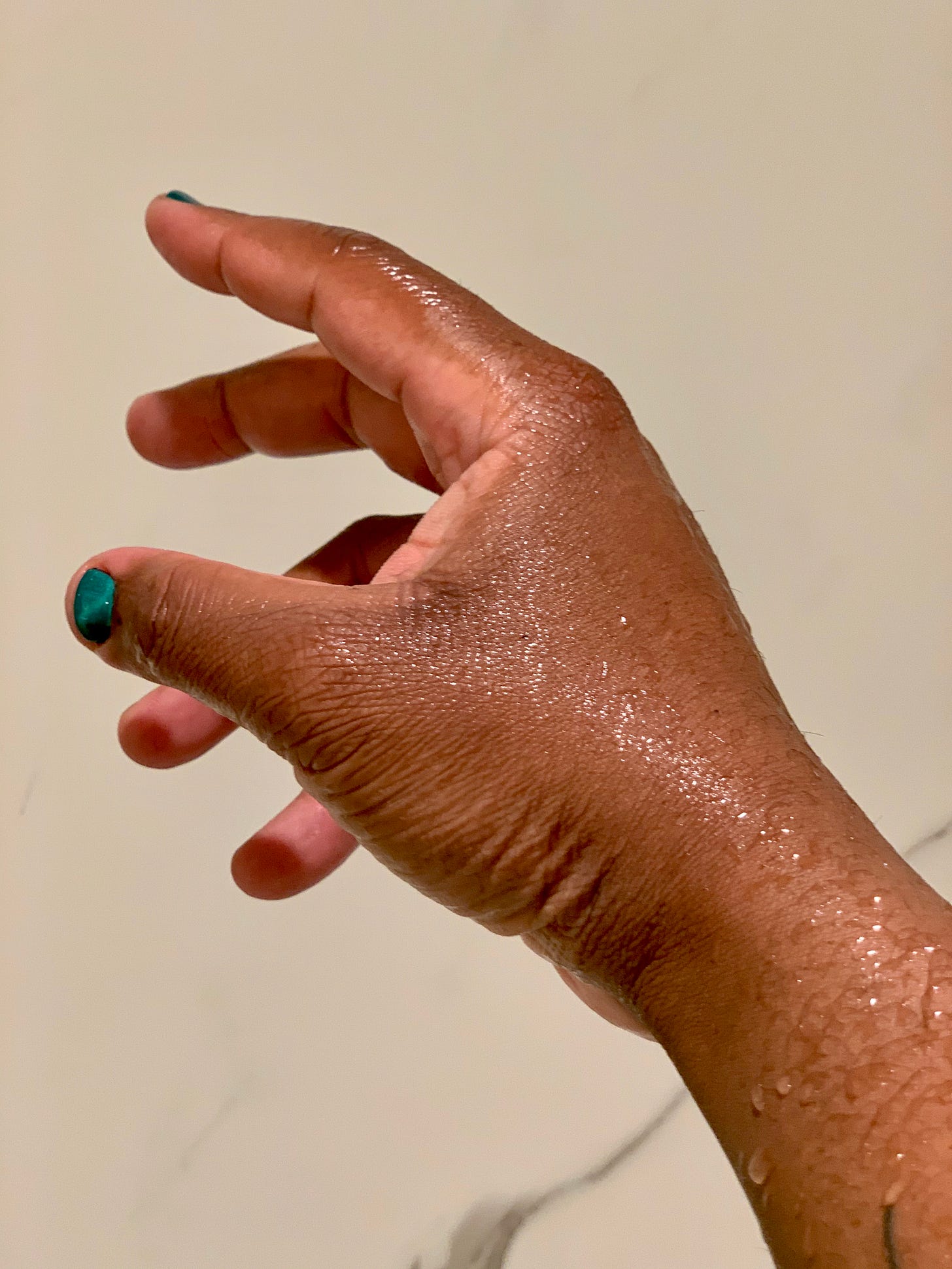Pain Is Memory Trapped In the Body
Alexa , play "Hard Times" by Paramore

Recently, I found myself at the Seattle airport with some time to kill before my flight. Or maybe — and I’m not trying to be clever here — I was at the airport in Portland on my way to Seattle. I was nearing the end of my 19-stop book tour, and, if you travel enough, airports become loud, interchangeable blurs with a lot of rules. I kept checking my boarding pass to figure out where I was going. A few minutes later, I’d forget and check again.
As I descended into the concourse’s chaos, I happened to see one of those airport massage salons I often slow down to gaze at in wonder, but never patron. I never have time. And when I do, the idea of getting a massage in the middle of an airport seems silly. I find it difficult to identify the border between taking care of myself and indulging myself. It’s usually not a fraught distinction (treat yourself! you deserve! do it for the culture!) but, every now and then, something inside me snags. “Should I get a massage?” becomes “Do I need a massage?” becomes “Do I need help?” becomes “What have I done to myself to need this kind of help?” becomes “Am I beyond help?” And then, I’m helpless.
This time, though, I walk-ran through those questions and decided to get a 30-minute foot and leg massage. A few minutes later, a nice lady led me to a cushy chair, eased both of my feet into a tub of blissfully hot water, and got to work. She was massaging the sole of my right foot when I let out a gasp. It didn’t just feel good. It felt like long-hidden pain being identified and released. It made me happy that I could afford to do this for myself; it made me deeply sad to realize that I had gotten used to this pain. I imagine this is true for many of us.
If pain is a memory stored in the body, then it is a kind of ghost. How many ghosts can a person contain in their body? How many ghosts can a person carry and for how long before the haunting begins to take its toll? How much more pain do black people in particular carry in their bodies than white people? Or do we carry less, because generally speaking, I’d like to think we live closer to the truth than white people, and isn’t that a kind of pleasure? Or is the truth itself a kind of pain? The massage therapist kept working; my mind continued to race through the questions being unlocked in rhythm with the pain she was setting free.
One last question: why does it seem that our bodies are better at storing pain than pleasure? Within a few days, it seemed my body had mostly forgotten the pleasure of that 30-minute massage. But pain? Pain always seems to be an incredibly vivid memory, vibrant inside my body. I hope this won’t always be true. Or rather, I hope that with time and great effort, my body will achieve a balance between what it savors and what it endures.
Reading Recommendations based on the above:
~ “Especially Heinous: 272 Views of Law & Order SVU” by Carmen Maria Machado
~ Citizen by Claudia Rankine


